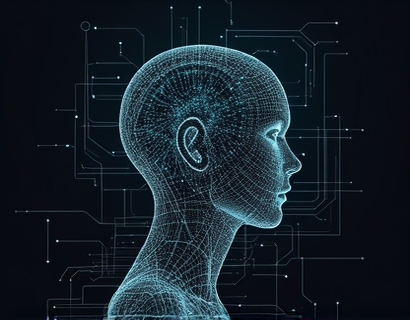AI-Generated Podcasts: Pioneering the Future of Engaging Audio Experiences
In an era where technology and creativity converge, AI-generated podcasts are emerging as a groundbreaking force in the audio content landscape. These innovative productions leverage advanced algorithms and machine learning to craft immersive, engaging content that redefines listener engagement and transforms the discovery of insightful discussions on any topic. For tech-savvy enthusiasts, the integration of artificial intelligence in podcast creation represents a significant leap forward, offering a unique blend of technology and storytelling that captivates and informs.
The Rise of AI in Podcast Creation
The use of AI in podcast production is not merely a novelty but a transformative shift in how audio content is created and consumed. Traditional podcasting relies heavily on human creativity and effort, from scriptwriting to voice acting and editing. AI-generated podcasts, however, automate and enhance these processes, allowing for the production of high-quality content at an unprecedented scale and speed. This technology can analyze vast amounts of data to identify trends, generate compelling narratives, and even mimic human voices with remarkable accuracy.
The foundation of AI-generated podcasts lies in natural language processing (NLP) and generative models. NLP enables the system to understand and generate human-like text, while generative models, such as GANs (Generative Adversarial Networks) and transformers, create coherent and contextually relevant content. These models are trained on extensive datasets, allowing them to learn patterns and styles that can be applied to various topics and formats, from interviews and documentaries to fiction and educational series.
Enhancing Listener Engagement
One of the most significant advantages of AI-generated podcasts is their ability to enhance listener engagement. Traditional podcasts often struggle to maintain audience interest, especially in a crowded market where new shows emerge daily. AI-generated content, on the other hand, can be tailored to specific listener preferences, ensuring that each episode resonates with its audience. By analyzing listener data and feedback, these podcasts can adapt and evolve, providing a more personalized and engaging experience.
Moreover, AI can introduce dynamic elements such as interactive content, where listeners can influence the direction of the podcast through choices or questions. This interactivity not only increases engagement but also fosters a sense of community and involvement among listeners. The ability to create bespoke listening experiences means that podcasts can cater to niche interests and demographics, expanding their reach and impact.
Revolutionizing Content Discovery
The discovery of new podcasts has always been a challenge for listeners, with the sheer volume of content making it difficult to find something truly compelling. AI-generated podcasts address this issue by leveraging machine learning algorithms to recommend content based on individual preferences and listening habits. These algorithms analyze vast amounts of data, including listener behavior, content metadata, and social media interactions, to curate personalized playlists and suggestions.
Furthermore, AI can assist in the creation of metadata and tags, making it easier for new podcasts to be discovered by relevant audiences. By automatically generating descriptive and accurate tags, AI helps podcasts stand out in search results and recommendations, increasing their visibility and potential listener base. This data-driven approach to content discovery not only benefits new creators but also enriches the overall podcast ecosystem.
Creating Immersive Audio Experiences
AI-generated podcasts are not just about efficient content production; they also offer a new dimension of immersive audio experiences. Through advanced audio processing techniques, these podcasts can incorporate spatial audio, 3D sound effects, and dynamic music scores that adapt to the content and mood of each episode. This level of audio sophistication enhances the listening experience, making it more engaging and emotionally resonant.
For example, in a documentary podcast, AI can generate soundscapes that transport listeners to the setting being described, whether it's a bustling city street or a serene natural landscape. In fiction podcasts, AI can create realistic voice acting and background noises, blurring the lines between reality and fiction. These immersive elements not only captivate listeners but also make the content more memorable and impactful.
Democratizing Podcast Production
One of the most profound impacts of AI-generated podcasts is their potential to democratize content creation. Traditionally, producing high-quality podcasts required significant resources, including skilled writers, actors, and editors. AI tools lower these barriers by providing accessible platforms and templates that allow anyone to create professional-sounding content with minimal effort. This democratization opens up opportunities for a wider range of voices and perspectives, enriching the diversity of podcast content.
Independent creators and small production teams can now compete with larger, well-funded entities by leveraging AI to produce high-quality episodes. This level playing field fosters innovation and creativity, as creators are free to experiment with new formats and ideas without the constraints of traditional production methods. The result is a more vibrant and varied podcast landscape, where unique and high-quality content is more readily available to listeners.
Challenges and Considerations
Despite the numerous benefits, AI-generated podcasts also present certain challenges and considerations. One of the primary concerns is the potential loss of human touch and authenticity. While AI can mimic human voices and generate coherent content, it may lack the emotional depth and nuance that a human creator brings to a podcast. Ensuring that AI-generated content maintains a personal and relatable quality remains a key challenge for developers and creators.
Another consideration is the ethical use of AI in content creation. Issues such as copyright infringement, data privacy, and the potential for biased or misleading content must be carefully managed. Transparency in how AI is used and the sources of data for training models is essential to build trust with listeners and maintain ethical standards in the industry.
The Future of Podcasting
As AI technology continues to advance, the future of podcasting looks increasingly promising. The integration of AI in content creation, recommendation systems, and audio processing is set to redefine the listening experience, making it more personalized, engaging, and immersive. For tech-savvy enthusiasts, AI-generated podcasts represent an exciting frontier, offering endless possibilities for innovation and creativity.
The podcasting community is likely to see a surge in new formats and genres, driven by the capabilities of AI. Educational podcasts can become more interactive and adaptive, tailoring content to the learner's pace and style. News and current affairs podcasts can provide real-time updates and analysis, leveraging AI to process and present information swiftly and accurately. Entertainment podcasts can push the boundaries of storytelling, creating complex narratives and characters with the help of AI-driven creative tools.
In conclusion, AI-generated podcasts are not just a technological advancement but a transformative force in the audio content industry. By enhancing listener engagement, revolutionizing content discovery, and creating immersive experiences, these podcasts are reshaping how we consume and interact with audio content. As the technology evolves, the potential for innovation and creativity in podcasting is limitless, offering a bright and exciting future for all enthusiasts.









































